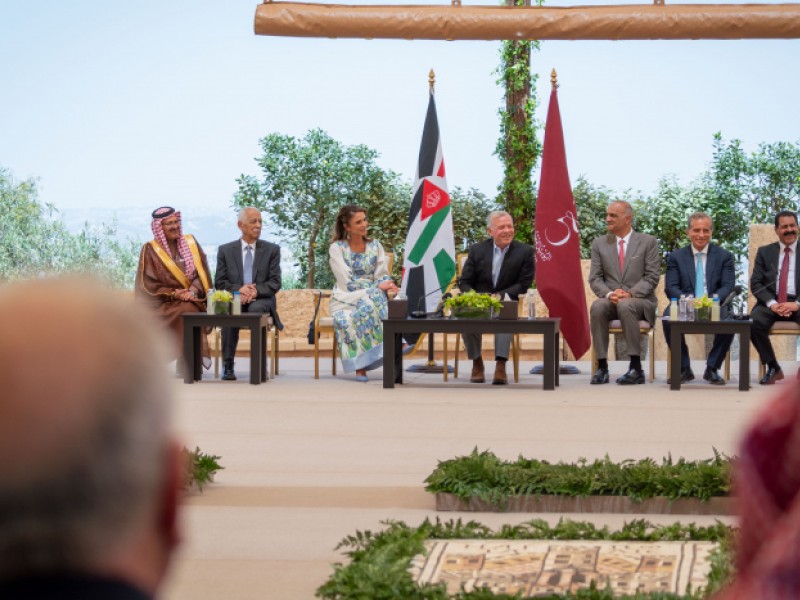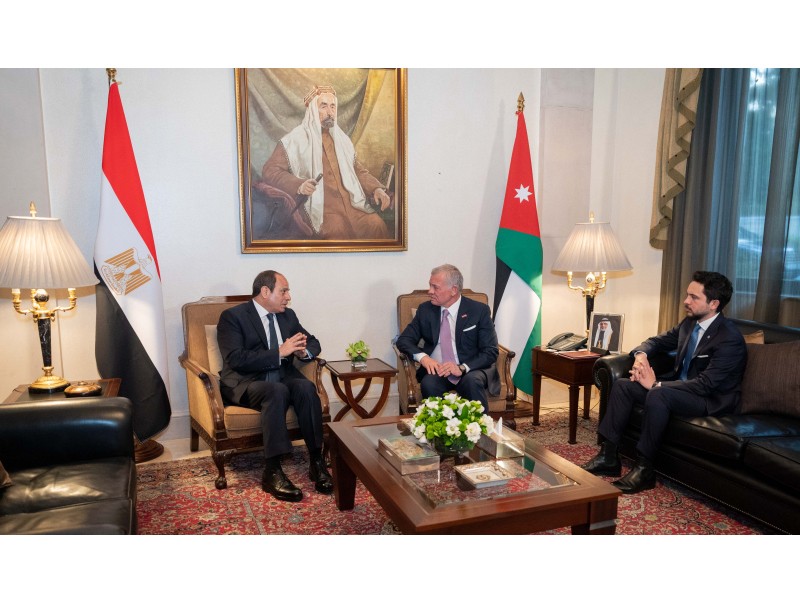Queen Rania Calls Gaza a Humanitarian Crisis, Pleads for a Ceasefire

(Office of Her Majesty – Press Department – Amman) - Calling for an emergency press conference, Monday, Her Majesty Queen Rania Al Abdullah made an urgent plea on behalf of all the civilians living in Gaza, especially the children, for a “humanitarian ceasefire” and for the international community to do all they can to help alleviate the suffering inflicted during this humanitarian crisis, including “bringing in vital medical supplies, equipment and staff.”
“Over the past 41 years, the people of Gaza have been living under occupation. Over the past 18 months, they have been living under siege. And for the past 10 days, the people of Gaza have been subject to a cruel and continuous military attack,” she said.
Sending out an urgent message to world leaders, Her Majesty warned that “our humanity is incomplete when children, irrespective of nationality, are victims of military operations” as she called on all nations to “act to end the fighting, and open all crossings, especially Karni, to permit the uninterrupted passage of wheat, fuel, medicine, and other vital supplies.”
Queen Rania was accompanied by Sigrid Kaag, Regional Director of UNICEF; Filippo Grandi Deputy Commissioner-General of UNRWA; Dr Guido Sabatinelli, Special Representative of World Health Organization; and Jacques Higgins, Director of World Food Program, who all referred to the situation in Gaza as a “humanitarian crisis.”
Speaking on behalf of the United Nations, Grandi said that the crossings need to be immediately and permanently opened, food and grain need to be made available, and international funding appeals must be supported. “All these things we talk about are interconnected,” he said.
“[The situation in Gaza] has been difficult for the past 18 months, but it is nearly impossible today… and it is very difficult to plan an operation in such an unpredictable manner.” Without the ceasefire, though, he warned that it will be increasingly difficult to make a difference there especially after the beginning of the ground offence.
Echoing the gravity of the situation in Gaza, Higgins stated that what is happening is also a “food crisis” and that there is a lack of basic commodities. “In November-December, we weren’t able to get in because of the crossings [being closed] and now we’re seeing the very negative impact of that,” he said, “People are hungry… and we have only been able to do partial distributions.”
Kaag pointed out that the violence is hurting women and children the most. “The children form the majority of the population and are most in need of protection, psychological assistance…and medical support,” she said.
Dr. Sabatinelli supported this statement, noting that there is a very high level of infant and maternal mortality in Gaza, and the highest rate of communicable diseases, malnutrition and anemia in the region.
One out of every three children who go to UNRWA schools and half of all mothers going to deliver are anemic, he said. “The health staff cannot access their posts,” he said, “and patients cannot move freely to reach the hospitals.” Underscoring the humanitarian perspective, Grandi said, “we are not involved in the [political] discussion, but we continue to call for [a ceasefire].”
In her statement Her Majesty, who is a staunch advocate of protecting the rights of children, set out to remind the international community of the devastating toll. “The children of Gaza, the dead and the barely living, their mothers, their fathers are not acceptable collateral damage; their lives do matter, their loss does count. They are not divisible from our universal humanity – no child is, no civilian is,” she said.
Featured
Queen Rania's official website
This website does not support old browsers. To view this website, Please upgrade your browser to IE 9 or greater
Your browser is out of date. It has known security flaws and may not display all features of this and other websites. Learn how to update your browser



